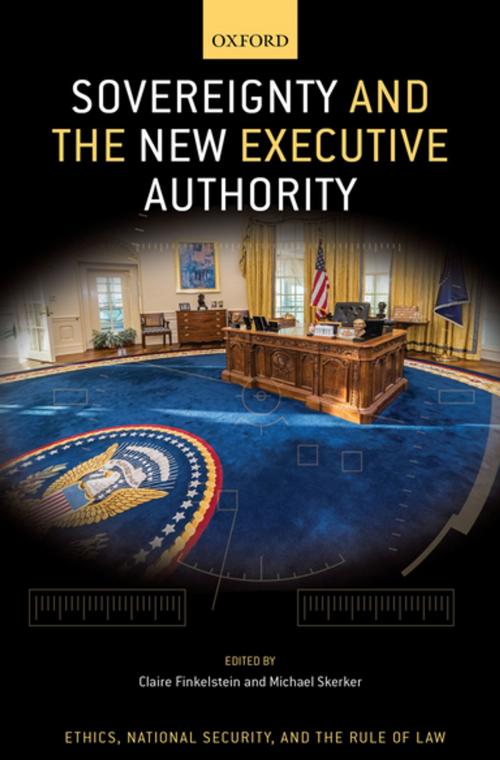Sovereignty and the New Executive Authority
Nonfiction, Reference & Language, Law, International, Social & Cultural Studies, Political Science, Government, Local Government| Author: | ISBN: | 9780190922566 | |
| Publisher: | Oxford University Press | Publication: | October 5, 2018 |
| Imprint: | Oxford University Press | Language: | English |
| Author: | |
| ISBN: | 9780190922566 |
| Publisher: | Oxford University Press |
| Publication: | October 5, 2018 |
| Imprint: | Oxford University Press |
| Language: | English |
The idea of sovereignty and the debates that surround it are not merely of historical, academic, or legal interest: they are also potent, vibrant issues and as current and relevant as today's front page news in the United States and in other Western democracies. In the post- 9/11 United States, the growth of the national security state has resulted in a growing struggle to maintain the legal and ethical boundaries surrounding executive authority, boundaries that help to define and protect democratic governance. These post-9/11 developments and their effect on the scope of presidential power present hard questions and are fueling today's intense debates among political leaders, citizens, constitutional scholars, historians, and philosophers. This volume will contribute to the public conversation on the nature of executive authority and its relation to the broader topic of sovereignty in several ways. First, readers will learn that the current vital questions surrounding the nature of executive authority and presidential power have their intellectual roots in historical and philosophical writings about the nature of sovereignty. Second, sovereignty has historically been a complicated topic; this volume helps identify the terms of the debate. Third, and most critically, citizens' understanding of the concept of sovereignty is essential to grasping the available options for confronting current challenges to the rule of law in democratic societies. The volume's 15 essays, drawn from among the disciplines of law, political, science, philosophy, and international relations, covers an expansive series of topics, from historical theories and international affairs, to governmental transparency and legitimacy. The volume also focuses on the changes in the concept of sovereignty post-9/11 in the United States and their impact on democracy and the rule of law, particularly in the area of national security practice.
The idea of sovereignty and the debates that surround it are not merely of historical, academic, or legal interest: they are also potent, vibrant issues and as current and relevant as today's front page news in the United States and in other Western democracies. In the post- 9/11 United States, the growth of the national security state has resulted in a growing struggle to maintain the legal and ethical boundaries surrounding executive authority, boundaries that help to define and protect democratic governance. These post-9/11 developments and their effect on the scope of presidential power present hard questions and are fueling today's intense debates among political leaders, citizens, constitutional scholars, historians, and philosophers. This volume will contribute to the public conversation on the nature of executive authority and its relation to the broader topic of sovereignty in several ways. First, readers will learn that the current vital questions surrounding the nature of executive authority and presidential power have their intellectual roots in historical and philosophical writings about the nature of sovereignty. Second, sovereignty has historically been a complicated topic; this volume helps identify the terms of the debate. Third, and most critically, citizens' understanding of the concept of sovereignty is essential to grasping the available options for confronting current challenges to the rule of law in democratic societies. The volume's 15 essays, drawn from among the disciplines of law, political, science, philosophy, and international relations, covers an expansive series of topics, from historical theories and international affairs, to governmental transparency and legitimacy. The volume also focuses on the changes in the concept of sovereignty post-9/11 in the United States and their impact on democracy and the rule of law, particularly in the area of national security practice.















